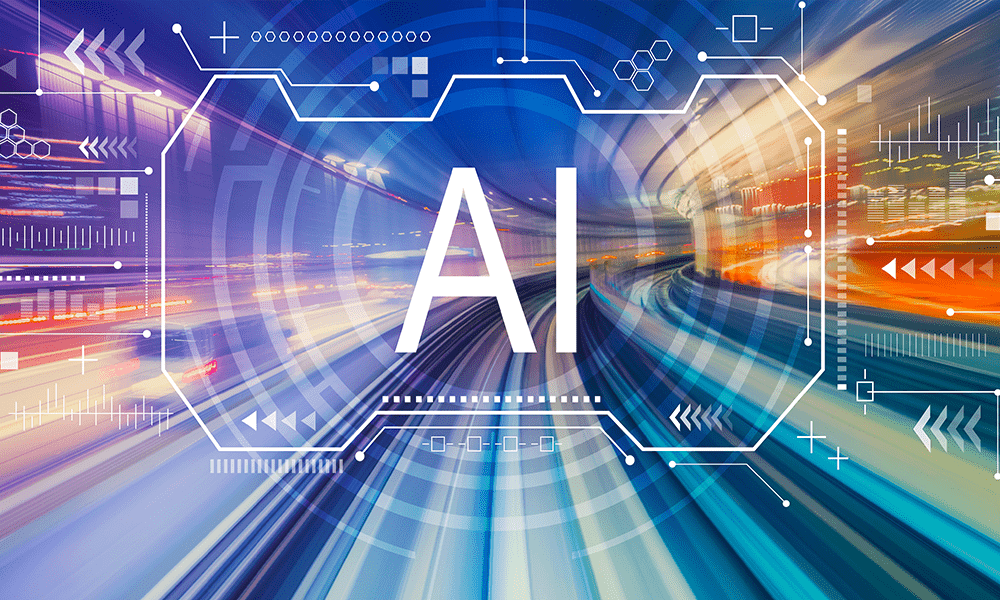10 Business Functions That Are Ready To Use Artificial Intelligence
2 July 2021
In the grand scheme of things, artificial intelligence (AI) is still in the very early stages of adoption by most organisations. However, most leaders are quite excited to implement AI into the company’s business functions to start realising its extraordinary benefits. While we have no way of knowing all the ways artificial intelligence and machine learning will ultimately impact business functions, here are 10 business functions that are ready to use artificial intelligence.

Marketing
If your company isn’t using artificial intelligence in marketing, it’s already behind. Not only can AI help to develop marketing strategies, but it’s also instrumental in executing them. Already AI sorts customers according to interest or demographic, can target ads to them based on browsing history, powers recommendation engines, and is a critical tool to give customers what they want exactly when they want it. Another way AI is used in marketing is through chatbots. These bots can help solve problems, suggest products or services, and support sales. Artificial intelligence also supports marketers by analysing data on consumer behaviour faster and more accurately than humans. These insights can help businesses make adjustments to marketing campaigns to make them more effective or plan better for the future.
Sales
There is definitely a side of selling products and services that is uniquely human, but artificial intelligence can arm sales professionals with insights that can improve the sales function. AI helps improve sales forecasting, predict customer needs, and improve communication. And intelligent machines can help sales professionals manage their time and identify who they need to follow-up with and when as well as what customers might be ready to convert.
Research and Development (R&D)
What about artificial intelligence as a tool of innovation? It can help us build a deeper understanding in nearly any industry, including healthcare and pharmaceuticals, financial, automotive, and more, while collecting and analysing tremendous amounts of information efficiently and accurately. This and machine learning can help us research problems and develop solutions that we’ve never thought of before. AI can automate many tasks, but it will also open the door to novel discoveries, ways of improving products and services as well as accomplishing tasks. Artificial intelligence helps R&D activities be more strategic and effective.
IT Operations
Also called AIOps, AI for IT operations is often the first experience many organisations have with implementing artificial intelligence internally. Gartner defines the term AIOps as the application of machine learning and data science to IT operations problems. AI is commonly used for IT system log file error analysis, with IT systems management functions as well as to automate many routine processes. It can help identify issues so the IT team can proactively fix them before any IT systems go down. As the IT systems to support our businesses become more complex, AIOps helps the IT improve system performance and services.
Human Resources
In a business function with human in the name, is there a place for machines? Yes! Artificial intelligence really has the potential to transform many human resources activities from recruitment to talent management. AI can certainly help improve efficiency and save money by automating repetitive tasks, but it can do much more. PepsiCo used a robot, Robot Vera, to phone and interview candidates for open sales positions. Talent is going to expect a personalised experience from their employer just as they have been accustomed to when shopping and for their entertainment. Machine learning and AI solutions can help provide that. In addition, AI can help human resources departments with data-based decision-making and make candidate screening and the recruitment process easier. Chatbots can also be used to answer many common questions about company policies and benefits.
Contact Centres
The contact centre of an organisation is another business area where artificial intelligence is already in use. Organisations that use AI technology to enhance rather than replace humans with these tasks are the ones that are incorporating artificial intelligence in the right way. These centres collect a tremendous amount of data that can be used to learn more about customers, predict customer intent, and improve the “next best action” for the customer for better customer engagement. The unstructured data collected from contact centres can also be analysed by machine learning to uncover customer trends and then improve products and services.
Building Maintenance
Another way AI is already at work in businesses today is helping facilities managers optimise energy use and the comfort of occupants. Building automation, the use of artificial intelligence to help manage buildings and control lighting and heating/cooling systems, uses internet-of-things devices and sensors as well as computer vision to monitor buildings. Based upon the data that is collected, the AI system can adjust the building’s systems to accommodate for the number of occupants, time of day, and more. AI helps facilities managers improve energy efficiency of the building. An additional component of many of these systems is building security as well.
Manufacturing
Heineken, along with many other companies, uses data analytics at every stage of the manufacturing process from the supply chain to tracking inventory on store shelves. Predictive intelligence can not only anticipate demand and ramp production up or down, but sensors on equipment can predict maintenance needs. AI helps flag areas of concern in the manufacturing process before costly issues erupt. Machine vision can also support the quality control process at manufacturing facilities.
Accounting and Finance
Many organisations are finding the promise of cost reductions and more efficient operations the major appeal for artificial intelligence in the workplace, and according to Accenture Consulting, robotic process automation can produce amazing results in these areas for the accounting and finance industry and departments. Human finance professionals will be freed-up from repetitive tasks to be able to focus on higher-level activities while the use of AI in accounting will reduce errors. AI is also able to provide real-time status of financial matters to organisations because it can monitor communication through natural language processing.
Customer Experience
Another way artificial intelligence technology and big data are used in business today is to improve the customer experience. Luxury fashion brand Burberry uses big data and AI to enhance sales and customer relationships. The company gathers shopper’s data through loyalty and reward programmes that they then use to offer tailored recommendations whether customers are shopping online or in brick-and-mortar stores. Innovative uses of chatbots during industry events are another way to provide a stellar customer experience.
Related Articles
Flying Taxis And Self-Driving Trucks Arrive In 2026: 6 Transport Trends To Watch
By now, “smart” versions exist of just about every home appliance, gadget and gizmos we can think of. However, manufacturers continue[...]
Technology in Action: My Key Takeaways on How AI and Quantum Are Accelerating Global Transformation
By now, “smart” versions exist of just about every home appliance, gadget and gizmos we can think of. However, manufacturers continue[...]
Sign up to Stay in Touch!
Bernard Marr is a world-renowned futurist, influencer and thought leader in the fields of business and technology, with a passion for using technology for the good of humanity.
He is a best-selling author of over 20 books, writes a regular column for Forbes and advises and coaches many of the world’s best-known organisations.
He has a combined following of 4 million people across his social media channels and newsletters and was ranked by LinkedIn as one of the top 5 business influencers in the world.
Bernard’s latest book is ‘Generative AI in Practice’.






Social Media